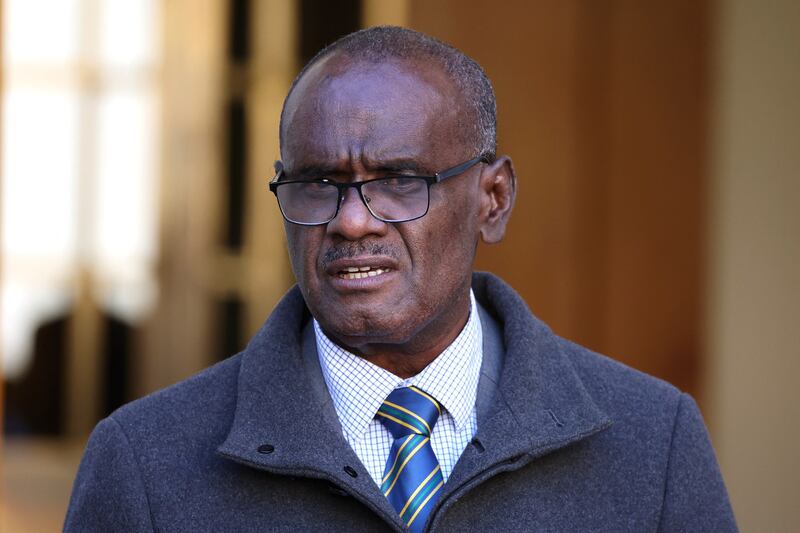The International Monetary Fund and Asian Development Bank are poring over a highly-critical audit of a multimillion dollar COVID-19 aid package in Solomon Islands, partly supported by the two institutions, that found widespread mismanagement and potential corruption.
The report from the Solomon Islands Auditor General Office highlighted a litany of problems surrounding delivery of the SBD$309 million (US$37 million) emergency funding for businesses and households between 2020-21.
Though the audit notes the extraordinary circumstances of the pandemic and the “heightened the inherent risk for expediting procurements,” it paints a damning picture of missing documentation, conflicts of interest, procedural breaches and possible fraud.
“We are currently going over the report and will be discussing it with the authorities,” an International Monetary Fund, or IMF, spokesperson told RFA affiliate BenarNews.
“The need for reforms to improve fiscal governance and public financial management in Solomon Islands has been underscored by the IMF, and we will continue to encourage and support the country in advancing these reforms.”
The audit’s findings are likely to reinforce public concern about thriving corruption in Solomon Islands. The country scored 43 out of 100 in Transparency International’s Corruption Perception Index last year, with 0 indicating “highly corrupt” and 100 “very clean.”
The economic stimulus package, endorsed in May 2020 by the cabinet of former Prime Minister Manasseh Sogavare, was funded by the Asian Development Bank, or ADB, the government and other development partners.
At the same time, the IMF approved US$28.5 million in emergency financing to help the country address urgent balance of payments needs. Honiara agreed to publish an audit of all COVID-19 related spending as part of the deal.
The ADB, which handed out US$20 million to the government’s COVID-19 response plan and the stimulus package, said it was aware of the audit and ready to investigate any alleged complaints of wrongdoing it received.
“The ADB’s Office of Anticorruption and Integrity takes all complaints of alleged integrity violations in ADB supported projects seriously,” it said in a statement.
Since its release earlier this month, the auditor’s report has made waves in Solomon Islands, a Pacific nation of about 700,000 people that lies some 1,750 kilometers (1,087 miles) off Australia’s east coast, between Papua New Guinea and Vanuatu.
Political pressure is growing on police to open an investigation into the findings, but Commissioner Mostyn Mangau has said he was waiting for a referral from the auditor general.
On Thursday, Prime Minister Jeremiah Manele said the report would be tabled in parliament and debated, but it had not yet been discussed in cabinet.
“There are processes there to be followed,” he told reporters in Honiara.
He added the audit “comes under the prerogative of the Minister of Finance,” who was out of the country.
Sogavare took up the post of finance minister after serving as prime minister between 2019 and 2024.

The economic stimulus package was managed by a small, overstretched team in the Office of Prime Minister and Cabinet.
The arrangement resulted in “many control weaknesses and control breakdowns,” Auditor General David Teika Dennis said in his report.
The audit report found, for example, that senior officials personally signed for many payments for beneficiaries but provided no evidence they had handed the payment on to the designated person.
“This was a significant breakdown of internal control – allowing government officers to sign for payments for beneficiaries who may not even be aware they are due to receive payment or how much they are to receive was a major fraud risk,” the audit report said.
“We identified one government officer who had personally signed for 251 Imprest Account cheques worth approximately SBD$6.8 million. The officer was also involved in encouraging and preparing applications for individuals.”
Funds were also paid to members of parliament to spend in their constituencies, but there was very little documentation to show how the money was used, the report said.
Overall, less than 10% of successful grant applications for aid could be provided to auditors, who also faced obstruction and delays while trying to do their work.
Charley Piringi contributed to this report from Honiara.
BenarNews is an RFA-affiliated online news organization.
